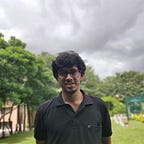Disclaimer: Many of the following details are unofficial and are only the details I have heard from students in the university. The best source for the details about the university, School of Computing and the courses would be through the website of NUS. Please contact the university to confirm any of these details.
The National University of Singapore (NUS) is one of the finest universities in the world, out of which the School of Computing produces some high quality research in different domains of computer science like artificial intelligence, game theory, cryptography, etc.
Due to these factors, a masters’ degree in NUS is highly sought after, by both students as well as companies for recruitment. Here, we discuss the details about the course for students who are planning to apply. Please comment on the post about any questions you may have, so that these answers would be helpful to others planning to apply as well.
Specializations
The Master of Computing course has 4 specializations — Artificial Intelligence, Computer Science, Information Systems and Information Security.
The School
The School of Computing is mainly located in 2 buildings in the NUS Campus, COM1 and COM2, which contain classrooms, seminar rooms and labs. There are many additional labs and rooms in some other nearby buildings as well.
Additionally, a new state-of-the-art building, COM3 is under construction and is scheduled to open in 2021.
The COM2 building also contains food stalls, vending machines and a 24 hour unmanned convenience store as well. A new food court “Terrace” is scheduled to open in the new COM3 building.
About the Program
The MComp program requires you to complete 40 credits, where the full time course can be completed between 1 and 3 years (Normally completed in 1–2 years, depending on the workload). For specializations like AI, there are certain core and elective modules that need to be taken. The details of these can be found on the website.
To complete the 40 credits, there are 3 options available to most students.
- Taking 10 subjects worth 4 credits each — here, the student can take 10 subjects, where each subject is for 4 credits. Note that in one semester a full-time student has to take at least 3 and at most 5 subjects.
- Taking 8 subjects worth 4 credits each, and completing a 1 semester project worth 8 credits.
- Taking 6 subjects worth 4 credits each, and completing a 2 semester dissertation option worth 16 credits.
However, the project and dissertation options depend on whether a professor selects you to be a part of their team.
There are some options available to convert to being a part time student as well, which depends on various factors.
During the Course
Students have a learning system called LumiNUS (Similarly to moodle), where students can see the course material, assignments, etc. for the courses they have taken. During the start of each semester, there are 3 rounds of module selection where the students have to provide their preferences for courses. Note that there are various factors based on which these are allotted to students, including but not limited to the student seniority, if the module is a core module to the student, and more.
The course structure of the module depends on the professor, who may choose a mix of in-class quizzes, examinations, assignments and projects for evaluation. Most modules have a 2–3 hour lecture once a week. Most lectures for graduate students are in the evening, to accomodate part-time students who travel from their job to attend classes.
The courses are quite challenging and require consistent work throughout the semester. Additionally, due to the high quality of students in the university, there is competition to get the higher grades.
After graduation
Since NUS Computing students are highly sought after, there are frequent job fairs in the university, where a number of technology companies, research organizations, government firms, financial companies and startups visit to catch hold of the best talent in NUS. There are multiple workshops held by the NUS Center for Future-Ready Graduates on these topics like resumé writing, interview skills and more. These initiatives help ensure that most of the students are able to secure good jobs once they graduate from NUS.
Some students also prefer to stay in academia, and continue doing their PhD after completion of their masters.
University Life
Being a challenging course, the MComp program ensures that a lot of your time will be spent on your coursework/research work. However, this does not mean that there is no time for any leisure activity. NUS is located in the heart of the city, allowing for connectivity to the rest of the island. There are numerous hiking trails near NUS. Within NUS, the sports facilities, gymnasiums are free of charge for students. The sports facilities in the University Sports Center and in UTown are some of the best in the country.
The UTown (University Town) of NUS has numerous places for fun, food as well as places for late-night study.
In fact, the UTown campus really comes to life at night. The UTown green is filled with people having a stroll or playing frisbee. And what’s more — UTown also has its own infinity pool, free of charge for students, offering amazing views of the campus. It also has 24 hour computer rooms, 24 hour food courts, a 24 hour Starbucks, and much more to do.
